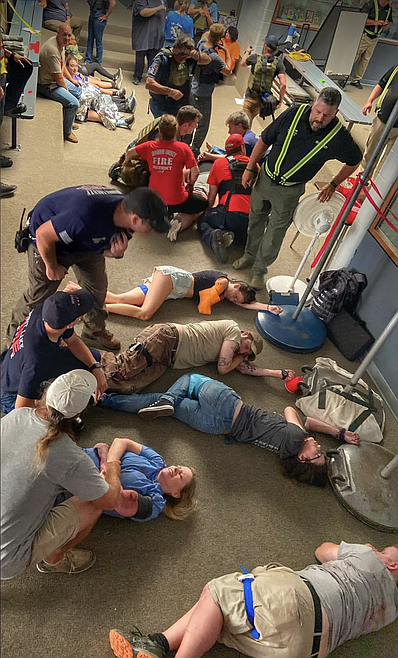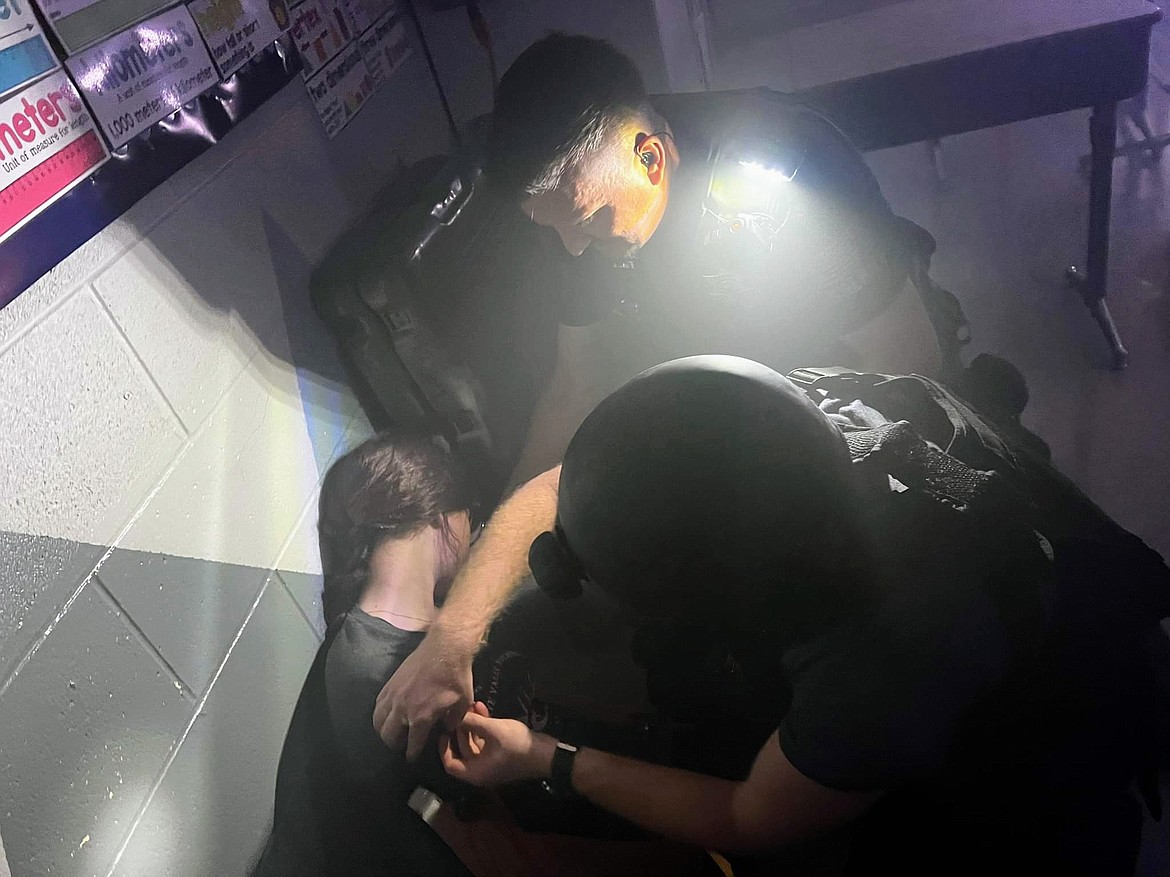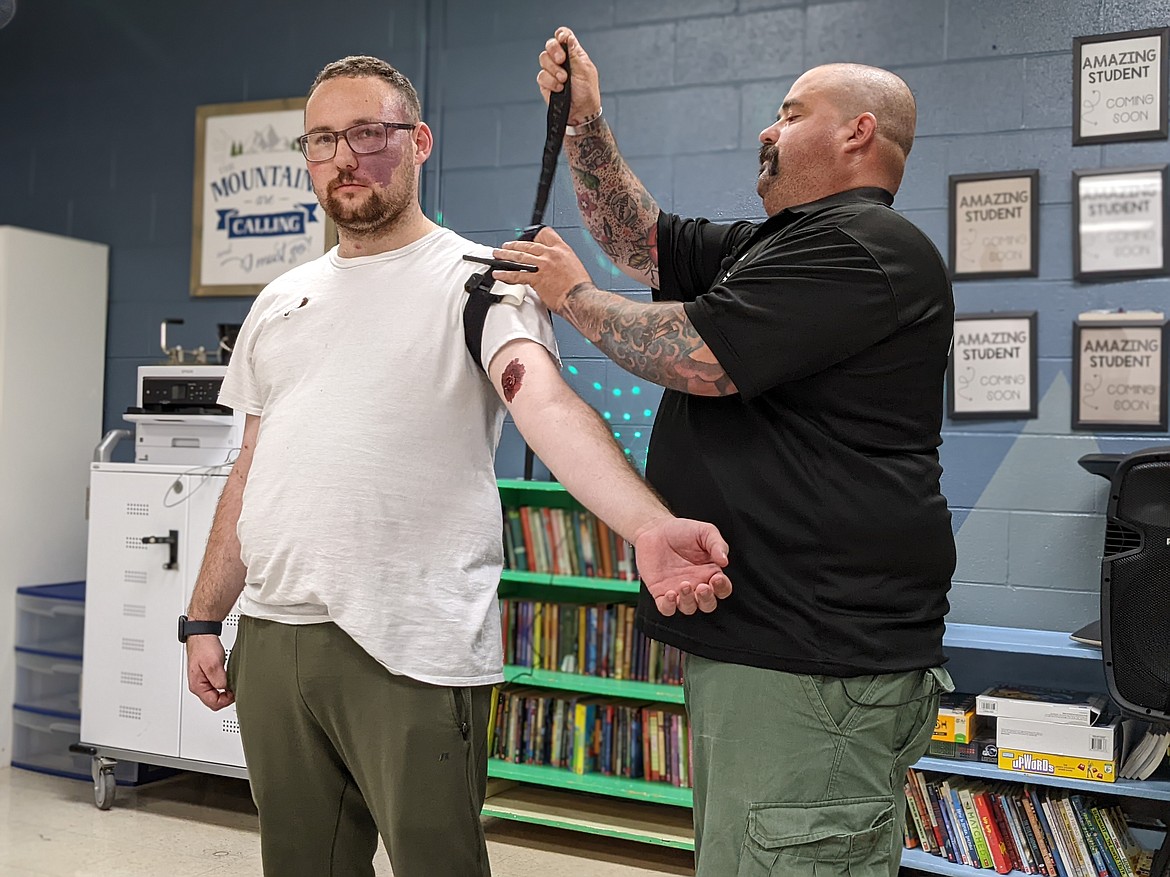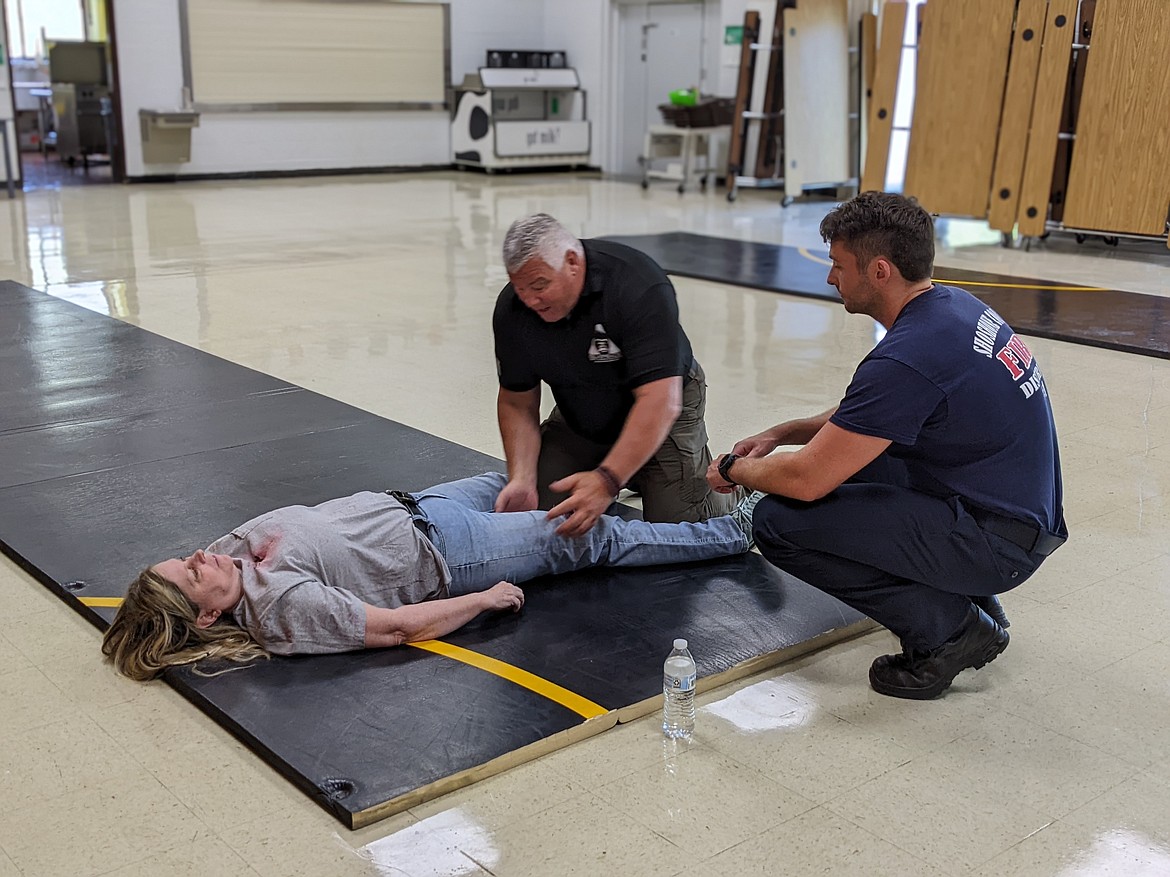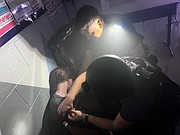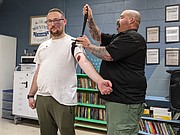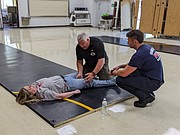Hope for the best, plan for the worst
OSBURN — It’s an unfortunate reality that emergency personnel across the country must be prepared for an active shooter situation at a school. What used to be a rare event has now become something that could seemingly happen in any community at any time.
In the wake of the recent Uvalde, Texas, school shooting on May 24 in which 21 people were killed and 17 more were injured, Shoshone County Fire District No. 1 Fire Chief John Miller took it upon himself to ensure that local first responders had the training necessary to handle such an incident.
Spearheaded by Miller, SCFD No. 1 Firefighter Melanie Shelton, Shoshone County Grant Administrator Colleen Rosson, and numerous others, District No. 1 had the privilege of hosting a Tactical Emergency Casualty Care/Rescue Task Force training event at the cleared out Silver Hills Elementary School in Osburn on Aug. 2-3.
This specialized hybrid training, administered by the Ohio-based Silverback Safety Training & Solutions Inc., was specifically designed for first responders and focuses on how to handle a school shooter situation from start to finish.
Miller explained that he first reached out to Silverback Safety owner Troy Lowe roughly two weeks after the Uvalde shooting with the goal of acquiring the training for 15 people.
With a small training budget of only $5,000 though, the district was a long ways off of being able to cover the costs.
“We were going to fundraise and do car washes,” Miller said. “Whatever it took to raise the money.”
Before one firehose could be broken out for those car washes though, Rosson was able to step in and help facilitate the use of grant funding provided by the Shoshone County State and Local Fiscal Recovery Fund (or American Rescue Plan Act funds allocated to Shoshone County).
Combing through the fine print of what ARPA funds could be used for, the trio discovered that funds could be used for counter terrorism/active shooter training. Shelton then worked with Rosson to write the grant and apply for the funding, but not just for 15 people.
“If we were going to do this, we are going to do it so that everyone in the county is involved,” Miller said. “If something happens, it’s going to be every agency in this county responding.”
What finally came to fruition was an approval by the Shoshone County Commissioners of $78,194.17 in grant funds to pay for not only the specialized training for 50 people, but also for the supplies necessary to put what was learned into use (if needed) in the future. These supplies included body armor, tactical triage chest packs, incident command equipment and patient treatment zone gear.
Lowe, who also invented the Barracuda Intruder Defense System and previously served as a Navy Corpsman attached to the Marine Corps, explained that Silverback developed these trainings to not only teach both medical and law enforcement personnel how to properly resolve a school shooter situation, but also how to address the wounds inflicted by an attacker.
“It’s horrific that what we offer is even needed,” Lowe said, “but the reality is that it is needed. The preparation is needed and I've been lucky and blessed in the sense that I've surrounded myself with some very skilled people of various backgrounds, so we can help because these situations are going to continue to happen until who-knows-when.”
Throughout the two-day event, the Silverback team had the chance to work with numerous local agencies and organizations such as SCFD No. 1 and 2, St. Maries Fire Department, Spirit Lake Fire Department, Shoshone County Sheriff’s Office, Osburn Police Department, Idaho Department of Lands, Shoshone Medical Center, and numerous others.
On the first day of the training, Lowe and his team put trainees through what he calls “stress inoculation” where they teach the basics of providing treatment to shooting victims while under duress.
As an active participant in this phase of the training, the author of this article can safely say that the Silverback team does a pretty bang-up job of simulating a high-stress situation.
First up was a 10-15 minute crash course on the use of M.A.R.C.H. (massive hemorrhage, airway, respirations, circulation and head injury/hypothermia), where participants were shown how to identify injuries and implement simple treatments such as applying tourniquets or chest seals.
Following that rundown, I was outfitted with chest plates and teamed up with SCSO Cpt. Jeff Lee, Sgt. Jared Bilaski and a colleague from another news organization to conduct the first simulation of the evening. Things kicked off with Silverback instructor Seth Mason shouting through a megaphone at our group with the volume of an opera singer and the cadence of an auctioneer to quickly get to the classroom containing the "victims."
Upon entering the incredibly hot classroom, we were greeted by heavy fog, numerous strobe lights, cries for help from the crisis actors, aggressive encouragement from the Silverback instructors and Elvis Presley’s “Hound Dog” blaring at a soothing billion decibels.
Channeling the training we just received, I myself was able to assess and treat two patients that had sustained "gunshot wounds" to certain extremities while Cpt. Lee provided support. Of all the distractions and stressors, the high heat and simulated pleas from the actors in the room were what affected me the most.
After the scenario was complete for each group, they were then taken to another classroom for a sort-of debriefing, where Silverback instructors asked participants what they thought of their performance and to demonstrate the M.A.R.C.H. procedure again on another actor.
Lowe explained that day two of the training was all about taking what was learned the night before, then applying it to a larger scenario that starts with the point of attack and ends with the delivery of casualties to the hospital staff.
“One of the things that we are definitely looking to overcome is getting some familiarity and face time with the agencies working with one another. We’ll work out the comms channels for this area.”
He added, “In almost all Mass Casualty Incidents, the major failure is always going to come back to communication.”
The Wednesday afternoon drill kicked off just how it would if it were the real thing — a call coming in over the radio that an active shooting had been reported at the school and that law enforcement is needed to neutralize the threat. The next step was to establish a command post outside to coordinate efforts between law enforcement and EMS.
Once the shooter had been neutralized and the building was cleared, it was then time to address any casualties that may have been incurred throughout the incident (using the training from the night before). Finally, these "casualties" were then extracted for further treatment.
Lowe explained that they conducted multiple run-throughs of the drill to shake out any mistakes and give everyone a chance to try different roles — such as being in the command post.
Following the extensive and incredible informative courses, numerous local officials had nothing but praise for the Silverback training.
“Absolutely the best training in my career so far,” Lee said. “Super proud of my SCSO team and the local crew that participated.”
“The training was about being proactive instead of reactive in this situation,” Miller added. “Shoshone County residents should feel better knowing that the type of training we got makes us capable of handling a situation such as this much more now than we were earlier this week.”
This recent Tactical Emergency Casualty Care/Rescue Task Force training compliments an earlier initiative by SCFD No. 1 were they were able to secure funding to put JACOB Kits in all local schools, making them the first in the region to have such kits in the classrooms in case of emergencies. JACOB Kits are minimalist, life-saving trauma kits that contain a tourniquet, trauma dressing, gauze and gloves — all items that were used in the two-day training course.
Lowe later praised all the participants that took part in the event.
“Absolutely fantastic,” he said of them. “I really admire the hell out of them…this community is in good hands. You had a large group of people here who are not being paid to be here. They’re eating this up and asking for more. It’s good stuff, very positive people. I can’t say enough about Chief John Miller and his second, Melanie.”
While nothing is set in stone at this time, there is already talk of Silverback returning to the Silver Valley for a refresher course in the future and possibly implementing an explosive disposal element as well.

